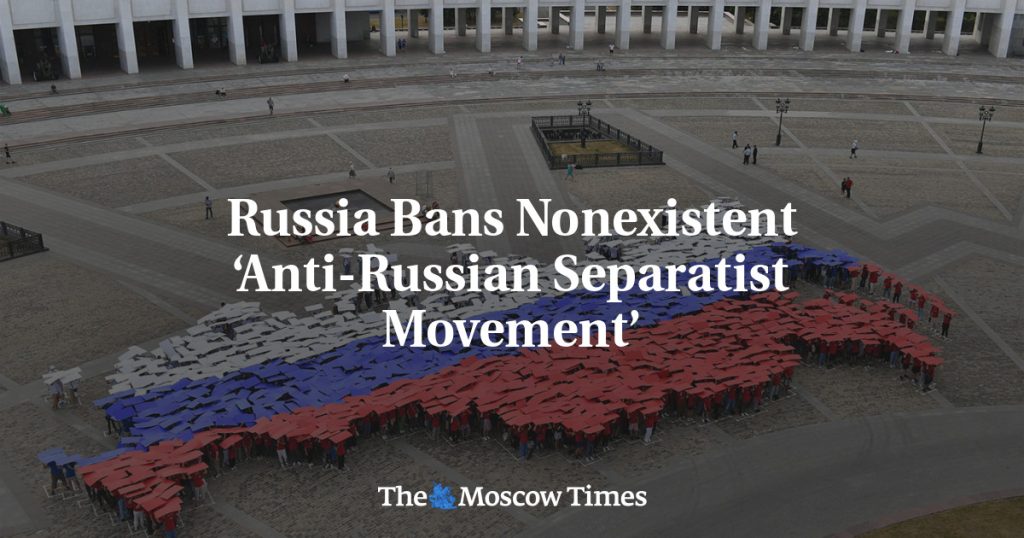The Supreme Court of Russia has recently banned the vaguely defined “Anti-Russian Separatist Movement” as an extremist organization. However, rights groups have pointed out that they have not been able to find a formal organization by that name, leading to concerns that the authorities could use this designation as a pretext for broader criminal prosecutions of various activists, including anti-war, anti-colonial, and Indigenous rights activists. The Justice Ministry of Russia, which initiated the claim of extremism in April, defined the group as an international public movement aimed at destroying the territorial integrity and multinational unity of Russia.
Mediazona, an independent news website, reported that its correspondent asked a ministry official before the hearing to provide clarification on what exactly constituted an “anti-Russian separatist movement.” The official simply stated that they did not guess, but rather knew the definition without offering further details. Following a closed-door hearing, the Supreme Court of Russia designated both the “Anti-Russian Separatist Movement” and its structural divisions as extremist. This designation carries severe penalties, including imprisonment for up to six years for anyone convicted of association with the vaguely defined organization.
This move is part of a pattern where the Russian Supreme Court has banned non-existent organizations, such as the fictitious “Ya/My Furgal movement” in support of a jailed ex-governor, as well as the “international LGBT public movement,” leading to a crackdown on public expressions of LGBTQ+ identities and lifestyles. The banning of the “Anti-Russian Separatist Movement” raises concerns about the potential for further restrictions on freedom of speech and activism in Russia. The lack of clarity and transparency in defining and targeting such organizations highlights the increasing challenges facing civil society and human rights defenders in the country.
The crackdown on perceived threats to the state, such as the “anti-Russian separatist” movement, reflects the broader trend of tightening control over dissenting voices and independent organizations in Russia. The use of vague and sweeping definitions of extremism allows the authorities to target a wide range of individuals and groups that may criticize government policies or advocate for social justice issues. This raises concerns about the shrinking space for civil society and the erosion of fundamental rights and freedoms in Russia.
Rights groups and activists have expressed alarm at the banning of the “Anti-Russian Separatist Movement” and its potential implications for freedom of expression and association in Russia. The labeling of dissenting voices as extremists or threats to national unity can have a chilling effect on activism and public discourse. The lack of transparency and accountability in the process of designating organizations as extremist raises questions about the rule of law and the protection of fundamental rights in Russia.
As the Russian government continues to crack down on independent voices and civil society organizations, it is essential for international partners and advocates to monitor and condemn these actions. The support of independent media outlets, such as The Moscow Times, is crucial in ensuring that information flows freely and that critical voices are heard. By standing in solidarity with journalists and activists in Russia, the international community can help uphold democratic values and human rights principles in the face of growing authoritarianism and repression.


